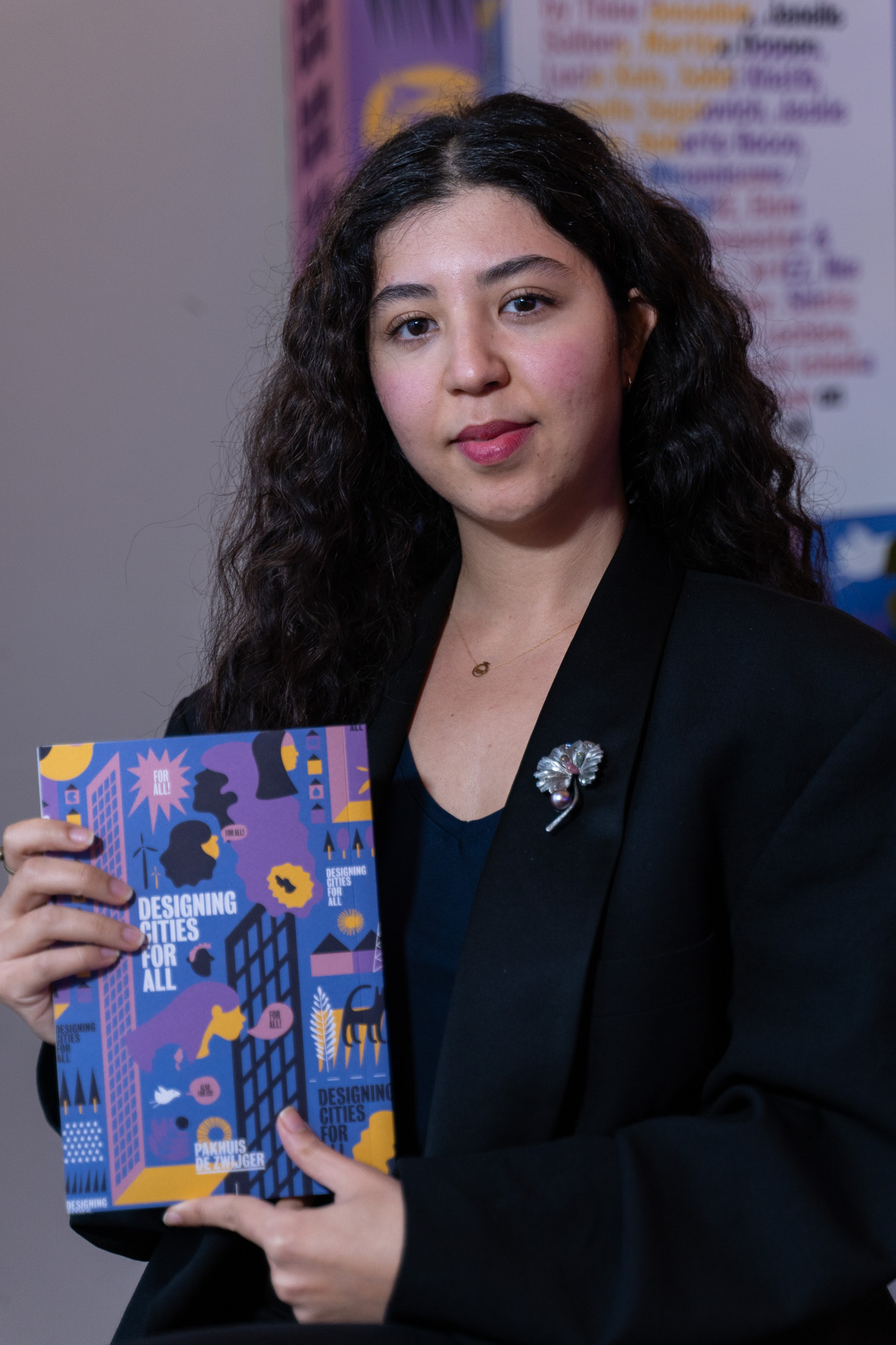During the final weeks of the year, we offer a weekly behind-the-scenes look at Pakhuis de Zwijger and interview one of our colleagues. Who are the faces behind our programmes, and what do we work on? This week, we talk to Faezeh Mohammadi, who shares insights into her role as programme maker for the Designing Cities for All series.
What exactly do you do at Pakhuis de Zwijger?
I work as a programme maker at Pakhuis de Zwijger. Essentially, I design and coordinate events and projects that bring important societal topics to the forefront. My primary focus for the past four years has been the project Designing Cities for All (DCFA), which concludes this December.
DCFA began in 2021 as a two-year initiative to explore inclusivity in design through research and presentations. The project is structured around programme series and fellowships. Each fellowship starts with a raw idea—something we feel hasn’t been explored yet in the realm of inclusive design. Later, in 2023 the second version, DCFA:RE-generation rebooted. From there, we collaborate with a fellow, an expert or advocate in the field, to develop this idea over several months, culminating in three interconnected episodes, as well as in a podcast. While each fellowship brings unique perspectives, we’ve also hosted DCFA specials, which are one-off programmes tackling timely topics.
My role involves selecting the fellows, shaping the themes, and coordinating the various elements of their contributions—whether it’s curating events, or compiling essays into a book. It’s a dynamic process that requires constant collaboration, and it’s incredibly rewarding to see these ideas come to life.
What were the highlights of the past year for you?
The publication of the last Designing Cities For All book was definitely the biggest highlight. It was a massive project that took six months to complete. The book compiles essays from past fellows, offering diverse reflections on inclusive design. Holding the finished product in my hands was a moment of pride after months of hard work. Another standout moment was collaborating with a community hub in Tokyo for one of our fellowships. This was our first time partnering with an institution rather than an individual fellow. Despite the challenges—like coordinating across time zones—it turned out to be an incredible learning experience! It was inspiring to see Japanese participants join our events at 3:00 a.m. local time!
Also, exploring the role of AI in inclusivity was a significant milestone. As we’ve delved deeper, it’s become clear that many aspects and angles of the conversation—particularly from a social perspective—remain unexplored. We’ve only scratched the surface of this topic, and I’m excited to expand on this next year.
And last but certainly not least, I’m confident the Grand Finale of Designing Cities for All will be a standout highlight! This programme is set for Monday, December 16, and will serve as the official wrap-up of the DCFA project. So that will be a very special evening for me.
What goals or plans do you have for the coming year at Pakhuis de Zwijger?
My main focus will be exploring inclusive technology—essentially continuing the ethos of DCFA but through the lens of AI and emerging tech. I want to design programmes that address the social implications of technology, ensuring inclusivity remains at the center of the conversation.
I also plan to make better use of DCFA’s incredible archive. Over the past four years, we’ve built a wealth of materials—from essays and podcasts to event recordings. My goal is to transform these into workshops and other formats that reach new audiences, such as students, educators, and communities who haven’t yet engaged with our work.
What role do you think Pakhuis de Zwijger plays in society and for you personally?
I see Pakhuis de Zwijger as a dialogue house, a space for conversations that might not happen elsewhere. Its role is vital in preventing further polarisation in society, particularly in a city like Amsterdam or, more broadly, across the Netherlands, where diversity is a defining characteristic. With so many different groups, nationalities and communities living together, fostering interdisciplinary discussions creates valuable opportunities for understanding and collaboration between these communities.
For me personally, working here has been transformative. I really appreciate the power of dialogue—not just as a method of engagement but as a tool for societal change. This place has shown me how important it is to keep these conversations going, even when the topics are challenging.

Nicole Spakman – Pakhuis de Zwijger






